2021 Research Progress Update
Announcements | Nov 18, 2021
Our research team has been hard at work over the last year. To keep you updated on their progress, we've developed a report showcasing some of the achievements from our Quantitative Fisheries Research, Fisheries Ecology, Pelagic Fisheries, Integrated Systems Ecology, Coastal and Marine Economics, and Ocean Data Products labs. More broadly, this report describes how our research program leverages its capacity to attract funding, produce data-driven results, and foster relationships within the scientific community.
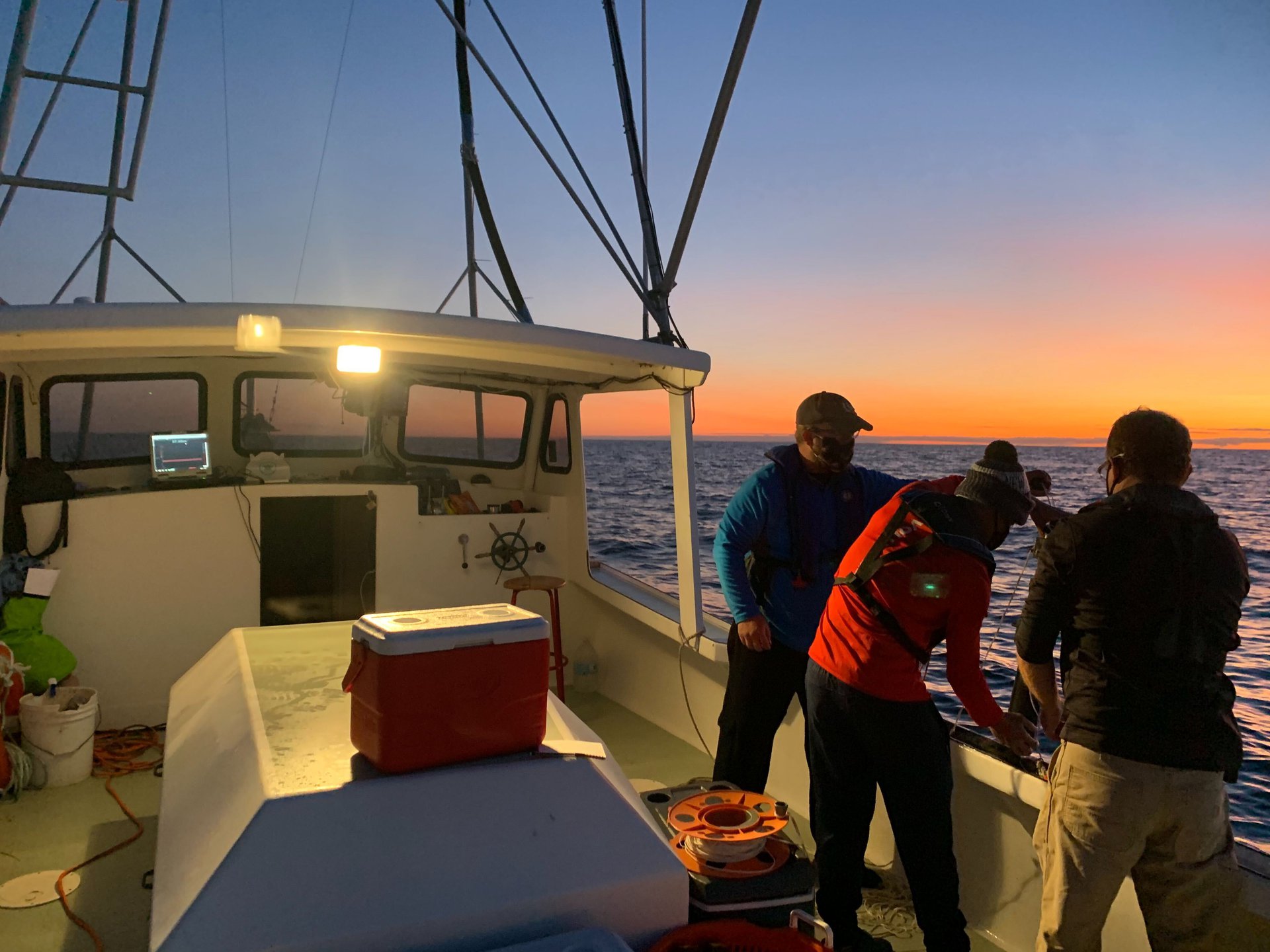
GMRI Research at a Glance
Here's a quick look at things like research team size, our research budget, publications, and more.
Research Team Size
Full-time GMRI Research Staff
Our research team makes up almost one-third of the entire staff employed at GMRI.
University of Maine
One University of Maine faculty member and seven University of Maine students and staff have contributed to GMRI research this year.
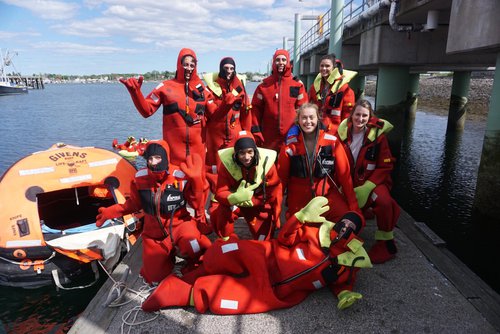
Interns
From July 2020 to June 2021, we were fortunate to receive research support from 16 interns, 14 of which came through our Research Experiences for Undergraduates (REU) program.
Budgets, Grants, and Contracts.
Total Research Budget
Our research budget remains strong, despite COVID-related challenges. Restrictions on travel and gatherings impeded many projects, especially those dependent on in-person meetings.
Active Grants and Contracts
38 Federal and State grants and contracts make up the majority, but we've also secured nine grants and contracts through foundations or other means.
Proposals Submitted for Funding
This represents a 47% increase in proposals submitted for funding compared to FY20.

Days spent at sea: Skiff
A 19' DLX Carolina Skiff named Havin Fundulus II enables our CBASS, mussels, and OMICS (eDNA) research.



Days spent at sea: Merlin
Our new research vessel, a Spencer Lincoln 37’ custom tuna boat named Merlin, was mostly used to conduct OMICS (eDNA) research.
2021 Research Highlights
Leadership
In October of 2020, we bid farewell to Andy Pershing, who had served as Chief Scientific Officer since 2014 and had been at GMRI since 2006. Upon Andy’s departure, Graham Sherwood stepped up as interim CSO, leading the research team through the uncertainty of the pandemic and a time of great change for the department. The search for a new CSO began early in 2021 and the position was accepted by Janet Duffy-Anderson this summer. Janet brings her nearly 20 years of experience as a leader in federal fisheries service and in the broader U.S. and international marine science communities through her service at the NOAA/Alaska Fisheries Science Center. She has a long history of advancing holistic, system-based fishery science and management through multi-disciplinary collaboration and partnerships, and a strong background in scientific research and operations, administration, and fiscal management. Janet will assume her post officially in March 2022, though will be involved in various activities — including SAC and Board meetings and the strategic planning process — prior to that. We warmly welcome Janet and thank both Andy and Graham for their invaluable service to the Research team.
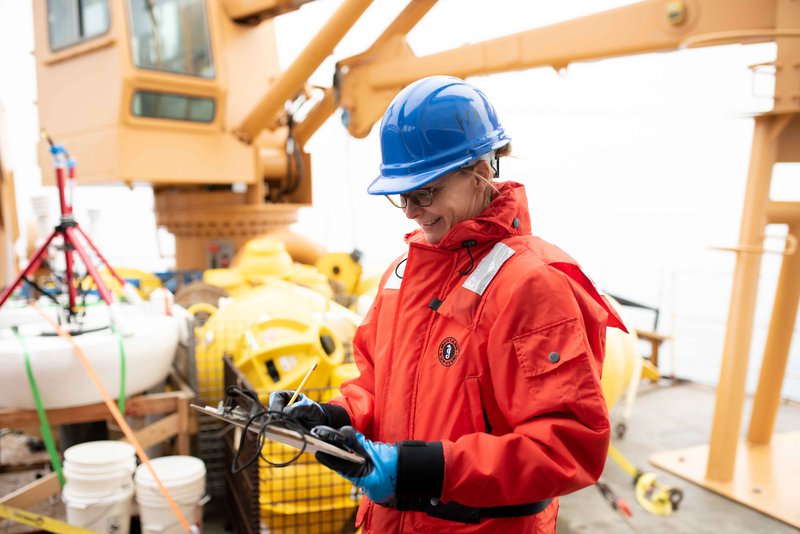
Partnership Highlights
IN FISH! and CINAR
This year, GMRI partnered with IN FISH! (Inclusive NOAA Fisheries Internship Program), a 10-week undergraduate research and resource management internship program designed to bring diverse talent to the marine sciences. IN FISH! was launched by NOAA’s Northeast Fisheries Science Center, NOAA line offices, HBCU’s, other academic institutions, and NGOs that have a shared concern with building a more inclusive and diverse community that conducts research and management in marine and environmental sciences. GMRI served as fiscal agent, participated in intern application review and selection, advised on program administration, and was host site to one IN FISH! intern. IN FISH! was received enthusiastically by CINAR, which served as the funding mechanism for this grant and will next year provide direct financial support to IN FISH! to grow the program and deepen its impact. Though IN FISH! was virtual in its inaugural year, it will move to an in-person model for year two. Next summer, the Research team hopes to welcome at least one IN FISH! intern to Portland for a research experience at GMRI.
Beyond IN FISH!, our relationship with CINAR continued to develop this year, and CINAR now funds six active projects on the Research team (three projects received renewed funding for FY22, and three new projects were funded). FY22 CINAR funding for the Research team alone exceeds $1 million (GMRI receives additional CINAR funding for projects led by the Community team). In the year ahead, we look toward leveraging this important relationship even more, particularly under the direction of our new CSO Janet Duffy-Anderson.
Supporting early-career scientists and expanding the research staff
- Three newly hired research associates
- One newly hired postdoc
- Three new postdocs to be hired with FY22 funding.
Supporting students: Research Experiences for Undergrads (REU)
This past summer, GMRI operated its third successful NSF Research Experiences for Undergraduates (REU) site. Our summer 2021 cohort marked the return of an in-person REU experience in Portland, a choice guided by the GMRI Pandemic Preparedness Action Team and in compliance with all Maine CDC guidelines. The REU class of 2021 worked on a range of topics, including the impacts of elevated nitrogen levels and green crabs on mussel health, effects of temperature on juvenile herring, drivers of tuna migration, effect of lights on lobster catches, trends in spiny dogfish and tuna diets, the impact of sea level rise on waterfront businesses, and the effect of fishing strategies on blue carbon sequestration. Overall satisfaction with the program was very high. Students were enthusiastic to have had an in-person experience after 14 months of isolation, and it went both ways — having students in residence over the summer was a major boost to the GMRI community morale.
In August, GMRI submitted a proposal to renew our REU award to support six students per year for three additional years. A renewal would continue our efforts and broaden students’ experience by exposing them to an even fuller range of GMRI expertise from eight potential mentors situated within our Research, Education, and Climate Center teams. As we reflect on the past three years of this program, it’s worth highlighting some of our successes. We have trained 20 young scientists in three cohorts, many of whom have gone on to continue their careers in science and/or graduate school. The program has exceeded recruiting goals by attracting a broad base of students (nearly 900 applicants) from which 20 students of diverse backgrounds were selected (75% were from underrepresent populations including students from racial/ethnic minorities, community college, and first-generation college students). In our exit surveys, 84% of students indicated that they would eventually like to attend graduate school and 90% said that our REU was an important factor in this decision. Of the 14 students who have graduated, seven are currently or planning to attend graduate school, two are working in STEM education, one is an environmental science professional, and another is transferring from a 2-year college degree to a 4-year degree.

Lab Updates
Coastal & Marine Economics
The Coastal and Marine Economics lab, led by Dr. Kanae Tokunaga, seeks to understand the mechanisms behind our decisions and behaviors, and how they relate to coastal and marine resource uses. During FY2021, the lab contributed to eight projects, serving as a GMRI lead for four and as PI for one.
New projects this year include Expanding Maine’s Blue Economy, funded by Sea Grant and led by Christian Brayden of the Maine Aquaculture Association. Kanae leads the supply chain analysis component of the project and is developing sampling approaches, designing semi-structured interviews, overseeing the overall interview process, and leading quantitative and qualitative analyses of the interview findings. Kanae also contributed to an Ocean Risks in SIDS and LDCs project, funded by the Ocean Risk and Resilience Action Alliance/Government of Canada, and led by Albert Norström of the Stockholm Resilience Center (SRC). Kanae is working alongside the SRC to support delivery of three synthesis reports detailing ocean-derived risks facing coastal communities in SIDS and LDCs; gender effects of ocean-derived risk exposure in small-scale fisheries; how emerging ocean-related opportunities and risks impact the economic safety and well-being of vulnerable communities and social groups such as women. Kanae is also supporting GMRI Learning Sciences Program Manager Dr. Amanda Dickes in a project aiming to support the development of socioecological literacy in underserved youth. In this work, they are developing underserved elementary students’ systems thinking and economic literacy through investigations of local ecological-economic systems. Kanae is contributing to developing modeling resources and technology, including economic models, to be used in classrooms.
During FY2021, the Coastal & Marine Economics lab hosted one intern (Viv Mazzocco, currently pursuing a Ph.D. at the University of Copenhagen) from May – August of 2021 to work on economic analysis of electronic monitoring. Through working on new projects and grant proposals, Kanae cultivated several new collaborations, including Maine Aquaculture Association, University of Maine School of Economics, and Stockholm Resilience Center. She also contributed to research proposals that involved Northeastern University and NOAA/NMFS. She co-authored three peer-reviewed publications during this period and presented at multiple academic conferences and webinars. She has led and contributed to drafting multiple manuscripts during this period for the Lenfest-funded project on fish allocation policies and for the Sea Grant-funded project on lobster economics.
Fisheries Ecology Research
Dr. Graham Sherwood’s Fisheries Ecology laboratory continues to carry on the tradition of on-the-water, observational research at GMRI. Projects in the Fisheries Ecology lab include the Casco Bay Aquatic Systems Survey (CBASS) which was launched in 2014 to monitor changes in the nearshore marine ecosystem in response to various drivers including warming, dam removals, and nutrient runoff; consistent activities over the last eight years have included a beach seine survey (560 seine hauls to date), river monitoring for alewife migrations, and temperature monitoring. This survey has also formed the basis for multiple REU research projects. The Fisheries Ecology lab is also engaged in new research to validate environmental DNA as a fisheries assessment tool. Projects here include a NOAA OMICS program-funded project to couple an acoustic survey for Atlantic herring with eDNA sampling (acoustic characterization of herring schools serves as a means to compare herring eDNA to a ‘known’ quantity; alternatively eDNA serves as a powerful means of ground-truthing acoustic signals), and an NSF EPSCoR-funded project (through the Maine-eDNA program at UMaine) to compare eDNA characterizations of inshore fish community patterns with those derived via seine surveys (i.e., CBASS). Our recent focus on inshore work has also allowed us to open lines of inquiry into nutrient dynamics (and related acidification issues) through the lens of stable nitrogen isotope signatures in blue mussels. This work is highly relevant to our collaborations with local research/monitoring groups (i.e., Casco Bay Monitoring Network) and allows us to deepen our scientific relevance in our own backyard.
The Fisheries Ecology lab is currently staffed by Research Associate Aaron Whitman, who supports eDNA, CBASS, and OMICS research, as well as mussel sampling. Aaron also bridges previous work in the area of gear technology and ongoing work in electronic monitoring by providing eVTR support to EM projects (with Community team) and by managing a project to assess the selectivity of an ultra-low opening trawl (ULOT) net to reduce bycatch of Atlantic cod.
Integrated Systems Ecology
Dr. Kathy Mills leads the Integrated Systems Ecology lab with a mission to distill and analyze complex ocean data to understand social-ecological system dynamics and inform decisions that promote conservation planning and resilient fisheries in a changing ecosystem. In the past year, much of the lab’s work has focused on climate adaptation and resilience in marine fisheries. Kathy conducted workshops in Northeast fishing communities to share results of research focused on shifting fish distributions, local fishery impacts, and adaptation strategies. This research is also supporting analyses of conditions that influence adaptation approaches and outcomes, with a particular focus on the lobster fishery (led by postdoc Katherine Maltby). Many research associates in the lab (Andrew Allyn, Matt Dzaugis, Adam Kemberling, Lindsay Carlson) are contributing to a new suite of species projections based on CMIP-6 climate model outputs. These results will form the foundation for continued adaptation planning in Northeast fishing communities and across US-Canadian fishery management areas, and they will support ecological analyses of composition and food web changes. More broadly, Kathy is leading an international SNAPP working group on Climate Resilient Fisheries to characterize, assess, and support operationalization of resilience in fisheries around the world. She led a successful UN Ocean Decade proposal to extend this work through a new program, Fisheries Strategies for Changing Oceans and Resilient Ecosystems by 2030 (FishSCORE).
The lab has also continued to advance ecological research to understand how climate and ecosystem changes are affecting fish populations. Much of this research over the past year has focused on Atlantic salmon, and three papers are published or forthcoming (led by postdoc Mike Tillotson and research associates Miguel Barajas and Lindsay Carlson) that characterize changes in marine growth, growth-survival relationships, and ecosystem conditions. The lab has also been studying warming trends across marine to riverine habitats, relationships between ocean temperature phenology and return migration timing of Penobscot River salmon, and suitability of habitats across Atlantic salmon life stages under future climate scenarios. Lobster is another focal species in our research. We are tracking and developing tools to share data on changes in ecosystem conditions that affect the lobster population and fishery and advancing distribution models for lobster by incorporating species interactions.
Ocean Data Products
Riley Young Morse leads the Ocean Data Products lab (ODP), a small team of software developers that specialize in transforming complex ocean data into simplified, accessible information streams and visuals for a diverse range of stakeholders. In early 2021, the team launched the product as the primary source for real-time buoy data and oceanographic forecasts for NERACOOS. A new initiative with NERACOOS led by Jeff Runge (at U. Maine) is focused on integrating long term and newly collected biological datasets (e.g., phytoplankton and zooplankton) from the region into a national effort - the Marine Biodiversity Observation Network. The team continues to work on several projects with GMRI collaborators. With the Education team, ODP maintains the Ecosystem Investigation Network and this year added additional functionality and two new projects to the platform (one on invasive species with the Education team and one on Sea Level Rise with the Climate Center). The Learning Resource Hub was also launched in 2021 as an online curriculum resource for teachers. The team is collaborating with internal external partners on two NASA-funded initiatives that will expand the Fisheries and Climate Data Dashboard to include new data products for phenology, climatology, and ecosystem forecast models. Additionally, the work from the Convergence Accelerator NSF project is being leveraged to optimize shared computational processes and workflows for commonly used “big” data sources such as oceanographic and physical data from satellites, climate and ecosystem forecast models, and fisheries time series datasets.
Pelagic Fisheries
The Pelagic Fisheries Lab, led by University of Maine professor Dr. Walt Golet, provides the biological information needed to improve stock status estimates, set appropriate quotas, ensure long-term sustainability, and preserve commercial and recreational fishing opportunities for highly migratory species. This year the lab continued biological sampling focused on Atlantic bluefin, yellowfin, bigeye, skipjack, and albacore, collecting over 1,500 samples from the bluefin tuna fishery and several hundred samples from the other tunas. Data from these samples is being used to establish age structure for bluefin, yellowfin, bigeye and albacore tuna.
Stock structure work is ongoing for bluefin tuna, bigeye, and albacore tuna. Foraging ecology analysis is ongoing for these tunas (as well as for blue and white marlin and round-scale spearfish), yielding what may be the first observations of river herring in the stomachs of bluefin tuna in the Gulf of Maine. Aging work on yellowfin and bigeye validated a near doubling of the assumed age of yellowfin and influencing the yellowfin tuna assessment in the Atlantic. Work with Lisa Kerr on otolith chemistry and work with Alex Hanke at DFO in Canada continue to highlight the high level of mixing with regard to Mediterranean origin bluefin captured in western Atlantic fisheries. Over the past year, the lab hosted one REU intern and two other interns from Bates and UMaine. Graduate students Sammi, Riley, and Brenda will be graduating this fall from their graduate programs. Walt continues to hold an academic position on the NOAA HMS AP and serve as the vice chair on the ICCAT Advisory Committee. Over the past year, the team has published several papers on the age/growth, stock structure, and foraging ecology of these highly migratory species.
Quantitative Fisheries Research
Dr. Lisa Kerr’s Quantitative Fisheries Research lab develops scientific insights that contribute to the sustainability and resilience of marine resources, ecosystems, fishing communities, and the seafood industry. A major goal of the lab is to bring climate information to bear on fishery stock assessment and management, employing management strategy evaluation (MSE) to test procedures for determining stock status and setting catch limits that will be resilient to climate variability and change. In the past year, Lisa’s lab has furthered its efforts to develop the next generation approach to fisheries decision-making. They have worked closely with the New England Fisheries Management Council to provide information on the performance of alternative harvest strategies for groundfish in a changing ocean. Lisa conceptualized and spearheaded the Northeast Climate Integrated Modeling (NCLIM) initiative that combines transdisciplinary science and co-development with stakeholders — bringing together data, models, and people — and is working with GMRI Education and Community teams to develop a program to train fishermen to contribute to MSE processes.
The team has been heavily involved in work to inform the latest Atlantic bluefin tuna stock assessment. Kerr chaired the U.S.-Canada Joint Index Working Group which included U.S. and Canadian scientists, managers, and fishing industry participants. The goal of these meetings was to improve indices of abundance to inform the 2021 stock assessment with the aim of addressing the challenges of conflicting trends in U.S. and Canadian fisheries indices due to the shifting distribution of fish. Another long-term focus of the lab is characterizing fish stock structure and bringing this information into management. Senior Research Associate Zach Whitener has been analyzing bluefin tuna samples from the Pelagic Fisheries lab to improve our understanding of how eastern and western stocks of bluefin tuna mix in the Gulf of Maine. This year marked ten years of sampling, and in that time, the lab has determined the origin of over 2000 bluefin tuna.
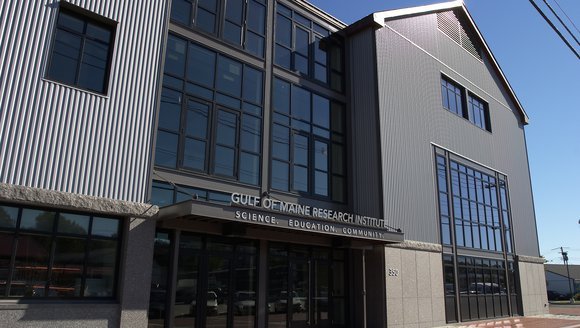
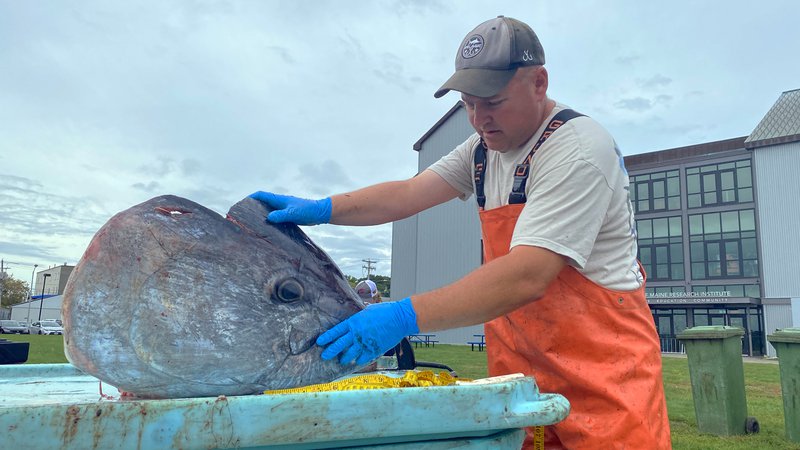
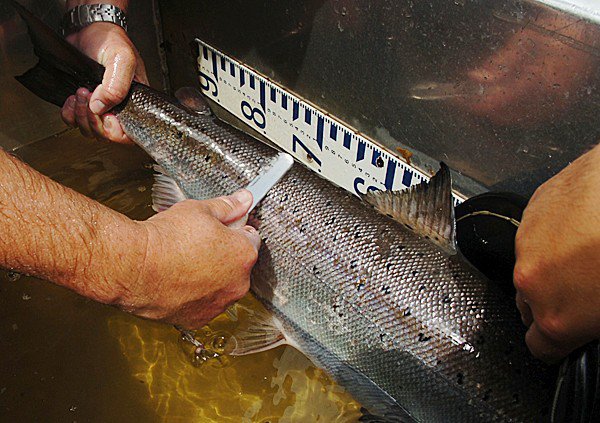
Recognition and Awards
Kathy Mills

Kathy Mills was appointed as the lead author for the Oceans and Marine Resources chapter of the next National Climate Assessment. Kathy is the second GMRI scientist in a row selected to lead the NCA chapter covering oceans and marine resources. Former GMRI Chief Scientific Officer, Andrew Pershing, led the development of the same chapter for the Fourth National Climate Assessment (NCA4). She will work with scientists from across the country to tell the story of how our oceans and marine resources are being impacted by climate change; how societal goals, industries, and communities are being affected; and innovative solutions that are emerging.
She was also appointed by ICES as chair of the ICES/PICES Strategic Initiative on Climate Change Impacts on Marine Ecosystems (SICCME) for a 3-year term. SICCME coordinates northern hemisphere efforts across ICES and PICES to understand, estimate, and predict the impacts of climate change on marine ecosystems. Chairs of SICCME contribute to the ICES Strategic Plan, Science Plan, and Advisory Plan and participate as non-voting members of the Science Committee (SCICOM). Through this role, Kathy will also serve on the Steering Committee for the 5th International Symposium on The Effects of Climate Change on the World’s Oceans (ECCWO), which is being planned for April 2023 in Bergen, Norway.
Lisa Kerr
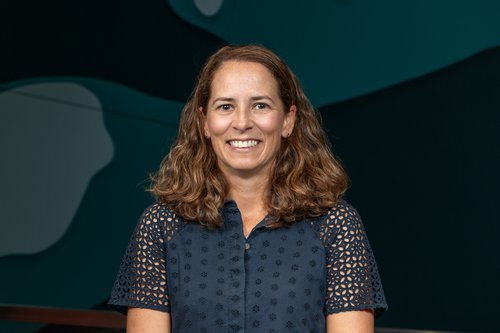
Lisa Kerr was appointed Chair of the New England Fishery Management Council’s Scientific and Statistical Committee (SSC). The SSC is composed of independent experts that are responsible for providing science-based recommendations on catch advice for our federally managed species in New England and advise the Council on emerging science issues. Lisa is the first woman to hold this role.
She is also chairing the Atlantic cod research track working group, is a member of the American plaice working group, and is also an author for the Northeast chapter of the upcoming Fifth National Climate Assessment (NCA).
Lisa was also recently featured in NOAA's Climate and Fisheries Adaptation (CAFA) Program PI Spotlight series, along with five other scientists working to advance understanding of climate‐related impacts on fisheries and fishing communities to inform sustainable resource management.
Graham Sherwood
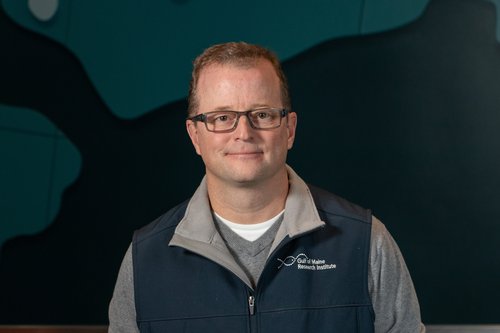
Graham Sherwood was appointed to serve on the Environment and Wildlife Working Group, one of four working groups commissioned by the Governor’s Energy Office to inform the “Offshore Wind Roadmap: Charting a Course for Maine”. This group is tasked with considering and providing recommendations for monitoring and mitigation work to minimize the impact of offshore wind development on the environment and to wildlife in the Gulf of Maine. Graham was also asked to join a subgroup organized by the Department of Marine Resources to provide guidance on trawl survey design in the area known as the Research Array further in support of the Governor’s offshore wind energy goals.
Science Seminars and GMRI Reads
Science Seminars
GMRI Virtual Science Seminars touched on a variety of topics including marine ecology, the seafood industry, marine protected areas and living resources, marine plastic, “frugal” science, and Responsible Research and Innovation. Presenters included colleagues from NOAA, Dartmouth College, Pacific Islands Fisheries Science Center, Fisheries and Oceans Canada, GEOMAR (Germany), the Swedish University of Agricultural Sciences, and Universities of Maine, Stanford, Bergen (Norway), Bristol (UK), and Utrecht (Netherlands). Peers from North and Latin America, Africa, Europe, China, and Australia joined our seminars or watched the recordings afterwards.
GMRI Reads
The scientific journal reading group “GMRI Reads” ran bi-weekly until December 2020 and monthly until July 2021. The group discussed papers related to the effect of climate change on physical oceanography, species physiology, population dynamics, and fisheries management. GMRI Reads also hosted 3 special events: one with Dave Reidmiller where he shared his experience as a member of the Office of Science and Technology Policy (OSTP) Agency Review Team during the Biden-Harris Presidential Transition and two about women in fisheries science, aquaculture, and the seafood industry with speakers from the GMRI Research and Community teams and True Fin.



